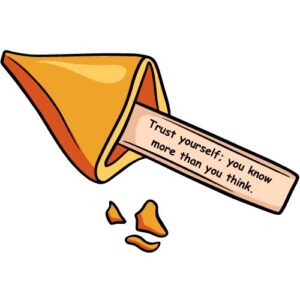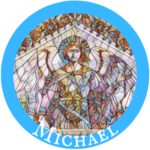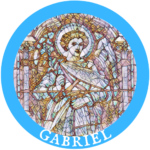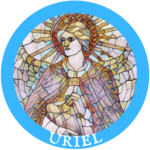In a world filled with external opinions and constant comparison, it’s easy to overlook the power of our inner wisdom. Doubts creep in, and we often question our abilities and knowledge. Yet, nestled within the wisdom of a simple fortune cookie message lies a profound truth: “Trust yourself; you know more than you think.” This statement is more than just a comforting thought; it is a powerful reminder of the vast reservoir of experience, intuition, and knowledge that each of us carries within. By learning to trust ourselves, we unlock the potential to navigate life's challenges with confidence and clarity. This journey involves recognizing our inner wisdom, cultivating self-confidence, listening to our intuition, and embracing mistakes as opportunities for growth. As we explore these concepts, we will discover how to harness the strength and insight that reside within us, guiding us toward a more assured and fulfilling life.
Recognizing Inner Wisdom
Trusting yourself begins with a profound recognition of the depth and breadth of your inner wisdom. It's easy to underestimate the wealth of knowledge and experience we accumulate over time. However, this reservoir of wisdom is the culmination of years of learning, growth, and life experiences. To truly trust yourself, it's essential to take stock of your journey thus far and acknowledge the lessons learned along the way.
Start by reflecting on your past accomplishments and challenges overcome. Consider moments in your life where you demonstrated resilience, creativity, or problem-solving skills. These instances serve as evidence of your innate wisdom and capabilities. Journaling can be a powerful tool in this process. Take the time to document your experiences, noting the insights gained and lessons learned from each situation. By reviewing your past experiences, you'll begin to recognize patterns of wisdom and strength that have guided you through various trials and triumphs.
Additionally, pay attention to your intuition and gut instincts. Often, our inner voice offers valuable guidance that we may overlook in favor of external opinions or societal norms. Cultivating a practice of mindfulness and self-awareness can help you tune into this intuitive wisdom. Take moments throughout your day to pause, breathe, and listen to your inner voice. Trust the insights that arise, even if they contradict conventional wisdom or expectations.
Cultivating Self-Confidence
Building self-confidence is a vital step in trusting yourself fully. Confidence is not only about believing in your abilities but also about having faith in your judgment and decisions. Cultivating self-confidence requires a combination of self-awareness, positive self-talk, and deliberate actions that reinforce your sense of worth and competence.
Start by becoming more aware of your strengths, talents, and past successes. Often, we focus on our shortcomings and failures, overlooking the many achievements that demonstrate our capabilities. Take inventory of your accomplishments, no matter how small they may seem. Celebrate these victories and acknowledge the skills and qualities that contributed to your success. This practice helps shift your focus from self-doubt to self-assurance.
Positive self-talk is another powerful tool for building self-confidence. Pay attention to the messages you tell yourself and challenge any negative or self-limiting beliefs. Replace critical thoughts with affirmations that affirm your worth and abilities. For example, instead of saying, “I'm not good enough,” remind yourself, “I am capable and deserving of success.” Consistently reinforcing positive affirmations rewires your mindset, boosting your self-esteem and confidence over time.
Finally, remember that building self-confidence is an ongoing process that requires patience and perseverance. Be kind to yourself and acknowledge that setbacks are a natural part of growth. Use setbacks as learning opportunities and reaffirm your commitment to trusting yourself and your abilities.
Listening to Your Intuition
Listening to your intuition is a profound practice that deepens your ability to trust yourself and make decisions aligned with your inner wisdom. Intuition is your subconscious mind's way of processing information and providing insights beyond conscious reasoning. It often manifests as gut feelings, hunches, or a sense of knowing without logical explanation. Learning to listen to and trust your intuition can be a powerful tool in navigating life's complexities with clarity and confidence.
One way to cultivate your intuition is through mindfulness practices such as meditation and deep breathing exercises. These practices quiet the noise of the mind and allow you to connect with your innermost thoughts and feelings. Set aside regular time each day to engage in mindfulness activities, tuning in to the subtle cues and sensations that arise within you.
Pay attention to your body's signals and sensations. Often, your body communicates information to you through physical sensations such as tension, discomfort, or a sense of ease. Learn to recognize these signals and trust them as valuable indicators of your intuition. For example, if you feel a sense of unease about a decision or situation, it may be a sign that something is amiss and warrants further exploration.
Practice intuitive decision-making by quieting the mind and tuning into your inner guidance. When faced with a choice or dilemma, take a moment to pause and listen to your intuition. Trust the first impression or gut feeling that arises, even if it contradicts logical reasoning or external opinions. Your intuition is a valuable resource that draws upon your past experiences, knowledge, and instincts to provide insights beyond conscious awareness.
Create space for intuition to flourish by quieting external distractions and tuning into your inner voice. Limit exposure to noise, technology, and external influences that drown out your intuition. Spend time in nature, engage in creative activities, or simply sit in silence to foster a deeper connection with your inner wisdom.
Embracing Mistakes as Learning Opportunities
Embracing mistakes as learning opportunities is a transformative mindset shift that strengthens your ability to trust yourself and grow from challenges. All too often, fear of failure paralyzes individuals, preventing them from taking risks or pursuing their aspirations. However, mistakes are an inevitable part of the human experience and offer valuable insights and lessons that contribute to personal growth and development.
Viewing mistakes through the lens of learning reframes them as stepping stones on the path to success rather than barriers to be feared. Instead of dwelling on what went wrong, focus on what you can learn from the experience. When you encounter setbacks or make errors, approach them with curiosity and a willingness to explore the lessons they offer.
Reflect on the circumstances that led to the mistake and identify any patterns or behaviors that contributed to the outcome. This introspection allows you to gain valuable insights into your decision-making process and areas for improvement. Journaling can be a helpful tool in this process, allowing you to record your thoughts and observations in a structured manner.
Seek feedback from others to gain different perspectives on the situation. Constructive feedback from mentors, colleagues, or friends can offer valuable insights and suggestions for how to approach similar situations in the future. Be open to receiving feedback with humility and a growth mindset, recognizing that it provides an opportunity for learning and growth.
Apply the lessons learned from your mistakes to future endeavors. Use the insights gained to refine your strategies, improve your decision-making process, and prevent similar errors from occurring in the future. By integrating these lessons into your approach, you demonstrate resilience and adaptability, strengthening your confidence in your ability to overcome challenges.
In Conclusion
Trusting yourself and recognizing that you know more than you think involves acknowledging your inner wisdom, building self-confidence, listening to your intuition, and embracing mistakes as learning opportunities. By integrating these practices into your life, you can enhance your decision-making abilities, reduce self-doubt, and navigate your journey with greater assurance and clarity. Remember, you have a wealth of knowledge and experience within you—trust in it and let it guide you toward your goals.










